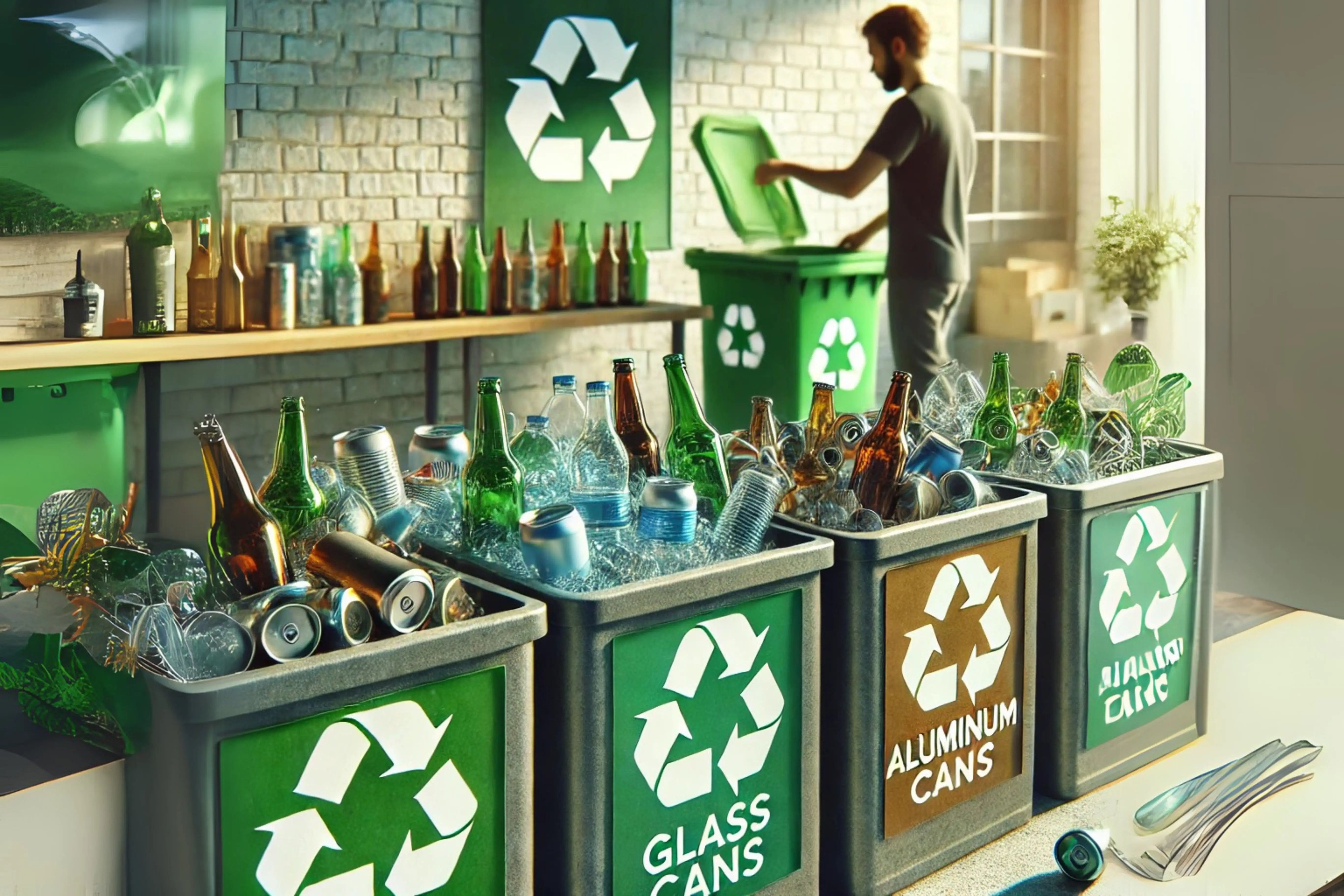Glass is a very versatile material. It may be used and re-used in a number of applications, like as windows, bottles, and jars; however, many people are ignorant of how glass bottles can be properly disposed of or recycled.
To get more people to recycle glass, we must inform them why it's important and how it can help protect our environment.
At The Bottle Depot, learn what sustainable glass is, why it is important to recycle it and how to do it.
Recycling is an essential way to reduce the amount of garbage we produce. It is an essential part of sustainable living, but the question is, can glass be recycled?
Sustainable glass is fabricated using reclaimed resources, which aids in the reduction of trash in the environment. It also decreases the amount of greenhouse gas emissions because it uses less energy than traditional glass products.
The Ultimate Guide to Recycling Glass Bottles and How You Can Make a Difference
How is glass recycled?
Is glass recyclable? Because recycling glass does not involve any expensive apparatus or chemicals, it is simple for anybody to perform at home or at work. Therefore, we should not think of recycling as a chore. Instead, it is an opportunity to impact transformation.
The recycling process starts by sorting the materials according to their type and then breaking them down into raw materials. The next step is to turn these raw materials into new products. This reduces the need for mining, reducing air pollution and water contamination.
There are two methods for recycling glass. The first method is the traditional recycling process, which requires breaking the glass into small pieces and melting them to make new glass bottles or other products. The second method involves using a chemical process that turns the waste into a synthetic material called "soda lime."
This recycling technique is more expensive but can be used for all glass containers and does not require heat from gas or electricity. There are many ways you can make a difference by recycling. For example, you can stop using plastic bags, start composting your food, use less water or electricity, or buy products that have been recycled or use Biodegradable glass bottles.
What is Biodegradable Glass?
Biodegradable glass is a type of glass that microorganisms can break down in biodegradation. The most common types of biodegradable glass are made from soda-lime silica or borosilicate. Borosilicate glass is also used to make Pyrex and other ovenware because it can withstand high temperatures. Soda lime silica is the least expensive type of biodegradable glass and has been used in products like light bulbs, windows, and tableware. The reason why biodegradable glass is so special is that it is made from materials that are friendly to the environment.
Our world is filled with waste, and the environment is suffering. We need to start taking care of it and make a difference.
What Kind of Glass Can Be Recycled?
Glass is recyclable, but the type of glass will determine what kind of recycling it is. Six types of glass can be recycled:
-
Window Glass
-
Plate Glass
-
Cullet Glass
-
Bottles and Jars
-
Insulated Glass Units (IGU)
-
Light Fixtures
Where to Find the Best Glass Bottles?
You've come to the right article if you've been looking for the best bottle supplier. The Bottle Depot Glass bottles are the best choice where to purchase glass bottles. The Bottle Depot Glass Bottles are classy, durable, and can be used for many years without damage. In addition, the Glass Bottles we sell at The Bottle Depot are made of lead-free glass and have an exquisite design.
The Bottle Depot offers a wide variety of glass bottles with the best prices and quality. The Bottle Depot is committed to providing customers with the best service and products. Also, We offer a wide selection of glass bottles, including essential oils, cosmetics, medicine, olive oil, flavoring, and more.
Here are some of the best glass bottles we have:
1 oz. Green Boston Round Glass Bottles
Glass bottles are a sustainable and recyclable packaging solution. They're also an excellent way to display the product inside—the 1 oz. Green Boston Round Glass Bottle is ideal for products that require protection from light and air.
2 oz. Blue Straight-Sided Glass Round Jars
These jars are made from high-quality glass that is clear and durable. They also have a straight-sided design, making them easy to store in cabinets or shelves. In addition, the jars come with lids that ensure the contents stay fresh and sealed, so they stay fresh longer.
3 oz. Amber Straight-Sided Glass Round Jars
The 3 oz. Amber Straight-Sided Glass Round Jars are perfect for storing dry goods like flour, sugar, and coffee beans. They are also great for storing liquids like honey, oil, and serum. This jar is made of glass, a strong material that will not break easily, and it comes with a lid that tends to make pouring out the contents simple.
4 oz. Clear Boston Round Glass Bottles
Glass Bottle is a great way to add sophistication to your packaging. 4 oz. Clear Boston Round Glass Bottles are made from high-quality glass that can be used for essential oils, perfume, and other liquids. They come in many sizes and are perfect for any liquid product.
What are the Best Glass Bottles to Choose from, and Why should we choose them?
Glass bottles are better for our health as they don't release chemicals or toxins into the liquid. They also last much longer than plastic bottles, meaning we can use them for years before they break and need replacing. Glass bottles are the best to choose for several reasons. They are durable, have a longer lifespan than plastic, and don't release chemicals into the liquid. The best glass bottles are also recyclable and will not leach any chemicals or toxins into the liquids inside them.
In conclusion, recycling can be a significant and purposeful thing to do. It is a way of showing that you care about the environment, and it can make a big impact. Recycling also reduces the need for new materials to be mined or grown, which can also cause harm to our environment.




